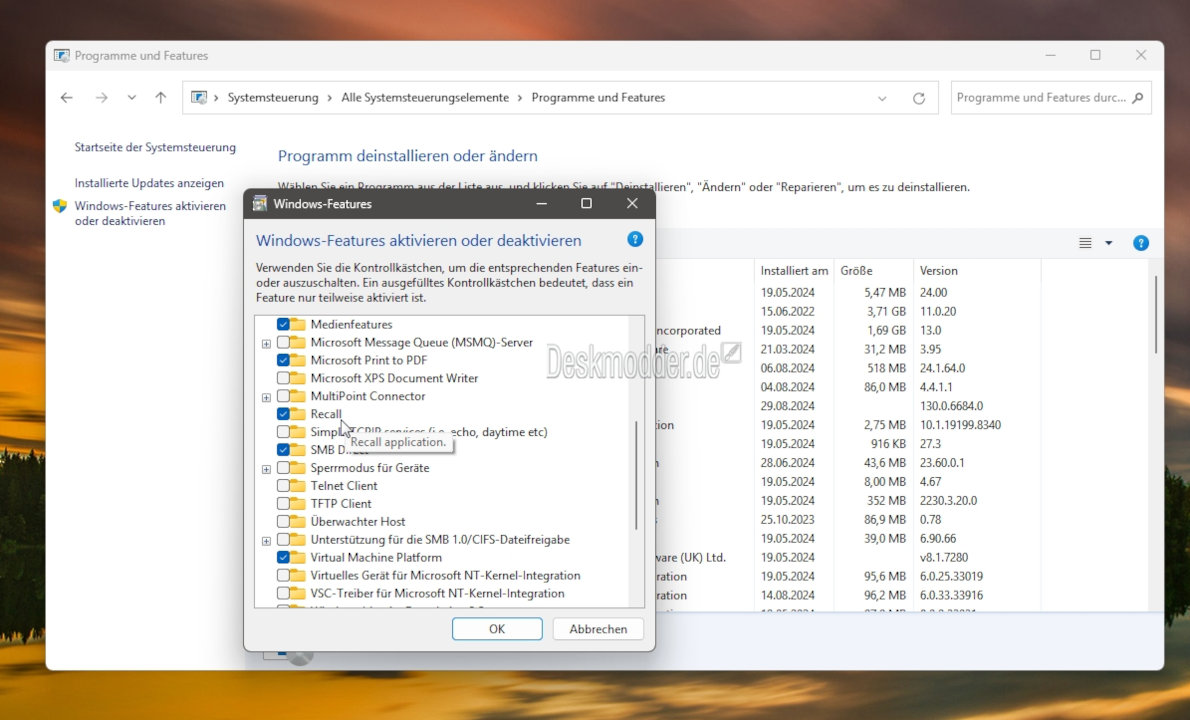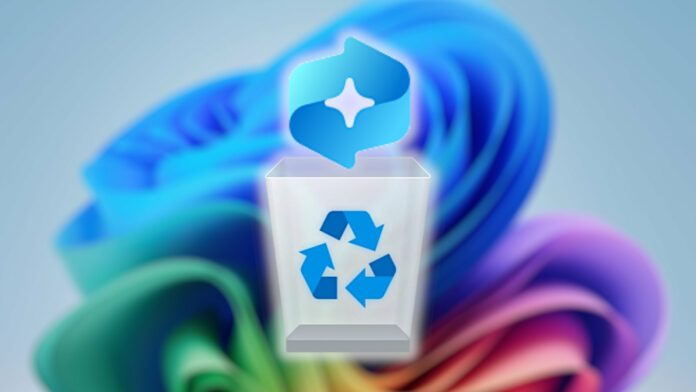Regardless of your stance on all things AI, Microsoft is keen to equip its operating system with deep learning smarts. Windows Recall is one such example, using artificial intelligence in a bid to make search smarter by periodically taking screenshots of your PC. It’ll soon become part of Windows 11 by default, but you’ll thankfully be able to expel it from your system if you so choose.
Despite Copilot+ PCs launching earlier this year, these systems are still lacking some advertised features. Microsoft decided to delay Windows Recall and scale back its availability following security and privacy concerns highlighted after its announcement. Now, the software giant plans to deploy Recall to Windows Insiders in October. However, seemingly aware that not everyone will want this snapshot tech, it’s also providing a means of uninstalling the thing.

As spotted by Deskmodder (via Windows Central), an optional Windows update (KB5041865) places Recall in the Windows Features list. This allows users to completely wipe it from their system. Prior to now, the feature could only be disabled.
These pre-emptive measures are a step in the right direction for the future of AI and Windows. While some will undoubtedly welcome the conveniences Windows Recall promises, others will prefer to stick to tried and tested methods. I fall firmly in the latter camp, at least for now.
I say this as someone that’s more than happy to use deep learning to boost my frame rates via Nvidia DLSS and remove blemishes from photographs with Google’s AI-powered Magic Eraser. Contrastingly, features like Recall create a feeling of discomfort that I’ll need to see play out elsewhere before I can comfortably take the plunge.
It’s hard to tell how quickly Microsoft plans to widen the availability of Windows Recall. Our guess would be sometime in early 2025. More pertinently, though, it’s unclear how the company plans to handle the feature outside of laptops. Intel Core Ultra 200 series CPUs will be the first desktop chips to boast a neural processing unit (NPU), a requirement for Recall. Even AMD’s new Ryzen 9000 processors lack this vital component.
It’s clear that Windows Recall still has a long road ahead of it before it can be the flagship AI feature Microsoft wants it to be. Of course, there’s every chance it could find itself in the proverbial recycle bin, alongside the late and not so great Cortana.


